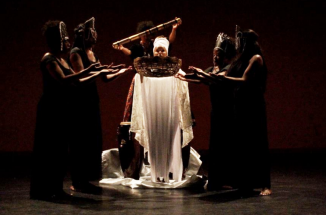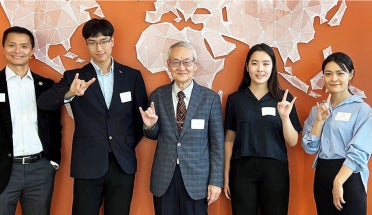
Theatre of the Oppressed Symposium Promotes Brazilian Artistry and Activism
- Dec 7, 2023
- Global Engagement and Strategy
Eight artists and leaders from Rio de Janeiro’s Center for the Theatre of the Oppressed (CTO) came to campus in October to present a nine-day symposium. The group showcased political history and art activism in Brazil using interactive performance techniques the CTO is known for.
Department of Spanish and Portuguese graduate student Laura Brylowski helped organize the event, a collaboration between The University of Texas at Austin Theatre and Dance Department, Texas Global, the Teresa Lozano Long Institute for Latin American Studies and several other University and community organizations. The symposium was supported by the Texas Global Internationalization Event Fund.
Led by an executive board of Black Brazilian activists and theatre practitioners, CTO presented a symposium that featured a series of workshops, performances and panel discussions, each focusing on a different topic such as racism, sexism and gender identity. Employing community engagement methods, the Theatre of the Oppressed model integrates audience participation and discussion into each performance.
Bárbara Santos, the director and “coringa”— Portuguese for “facilitator” — of the performances, said she served as a mediator between the stage and the audience.
“Usually, we present a question for the audience, and we ask them to come together [to] find some answers or new questions,” Santos said. “The difference in our perspective is that we try to convince people to find their answer from their own social place. We establish a dialogue with the audience.”
The CTO symposium engaged students and community members from across campus in exploring themes of race and gender justice as well as methods of political performance and activism used in Brazil. In concluding the symposium, Santos said she hoped audiences would walk away feeling inspired to work together to make positive change.
“The performance is not going to change reality,” Santos said. “What’s going to change reality is the action [that] comes after the performance. What we hope is that people keep this experience and [make] concrete actions. If we don’t join forces, we’re not going to change anything.”



